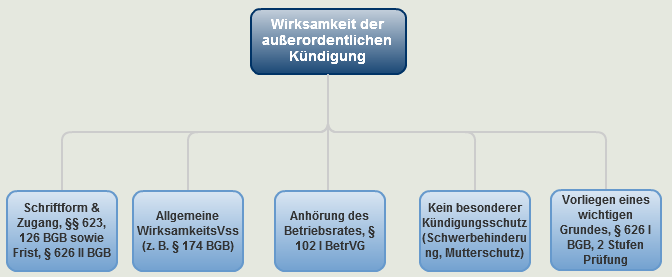Regional Labor Court Hamm, May 25, 2012, Case No.: 7 Sa 2/12
Employment contracts often contain non-compete clauses that prohibit employees from competing with their employer both during and after the term of employment.
Such clauses are permissible if properly drafted. It is important to note that for a post-contractual non-compete clause, compensation for the non-compete period must be provided.
However, even without an explicit contractual provision, employees are generally prohibited from competing with their employer due to an implied duty of „faithfulness“ and „loyalty.“ The legal basis for this non-compete obligation is § 60 HGB (Commercial Code) or the principle of good faith under § 242 BGB (Civil Code).
§ 60 HGB specifically addresses commercial employees:
(1) A commercial agent may not, without the principal’s consent, operate a commercial business or conduct transactions in the principal’s trade sector for their own or others‘ account.
(2) Consent to operate a commercial business is considered granted if the principal was aware at the time of the agent’s employment that the agent was operating such a business, and the principal did not explicitly agree to discontinue the business.
To assess whether an employee’s behavior constitutes a competitive act, it is necessary to evaluate whether a competitive situation exists, considering the legitimate interests of the employer.
A breach of the contractual non-compete obligation can generally justify a behavior-based dismissal of the employment relationship and, in some cases, even an extraordinary dismissal without prior warning.
Additionally, it is often possible for the employer to claim damages from the employee.
In the case mentioned above, the Regional Labor Court Hamm had to decide whether the employer could terminate the employee without notice due to competitive reasons, as the employee had offered to take over the care of a client of the employer.
Facts of the Case:
Claimant was employed as the Head of Vocational Rehabilitation
The claimant had been employed as the medical director of vocational rehabilitation at the defendant’s health center since January 1, 2006.
Defendant was a sports service company and worked for a football club
The defendant provided medical services, including in the field of sports, and was responsible for the team medical care of a West German football club’s professional squad. The claimant, along with two other doctors, was assigned to this care.
The service contract between the defendant and the football club was terminated
The parties negotiated a supplementary agreement to the plaintiff's employment contract, in which the supervision of the professional squad and, in particular, remuneration were to be regulated.
Cancellation of the service contract between the defendant and the football club
In December 2010, the football club terminated the service contract at the end of 2010 but later indicated it wanted to use the services until February 28, 2011.
Discussion on further cooperation
On January 19, 2011, a meeting initiated by the football club took place to explore further cooperation between the defendant and the Bundesliga club beyond the contract’s end.
Defendant terminated the claimant without notice
After the meeting, which ended inconclusively and was contentious, the defendant terminated the claimant’s employment that same day without notice due to refusal to work and a breach of competition. The defendant justified the dismissal by claiming that the claimant had already announced in writing on January 10, 2011, that he would continue to care for the professional squad in his own name and for his own account. During the meeting on January 19, 2011, the claimant, through his representative, not only announced that he would ensure team medical care in his own name until February 28, 2011, but also beyond that date.
First-instance Labor Court considered the dismissal valid
The initially involved Labor Court in Gelsenkirchen ruled on December 14, 2011 (Case No.: 3 Ca 141/11) that the extraordinary dismissal was valid.
Judgment of the Regional Labor Court Hamm
The court of appeal overturned the judgement and declared the termination invalid
The appellate court overturned the judgment and found the dismissal invalid.
The claimant should have been properly warned before the dismissal
Before dismissing the claimant, the defendant should have issued a warning to make it clear that the behavior anticipated by his lawyer constituted a breach of duty that could lead to dismissal without notice.
Source: Regional Labor Court Hamm
Important Note: The content of this article has been prepared to the best of our knowledge and belief. However, due to the complexity and constant evolution of the subject matter, we must exclude liability and warranty. Important Notice: The content of this article has been created to the best of our knowledge and understanding. However, due to the complexity and constant changes in the subject matter, we must exclude any liability and warranty.
If you need legal advice, feel free to call us at 0221 – 80187670 or email us at info@mth-partner.de.


